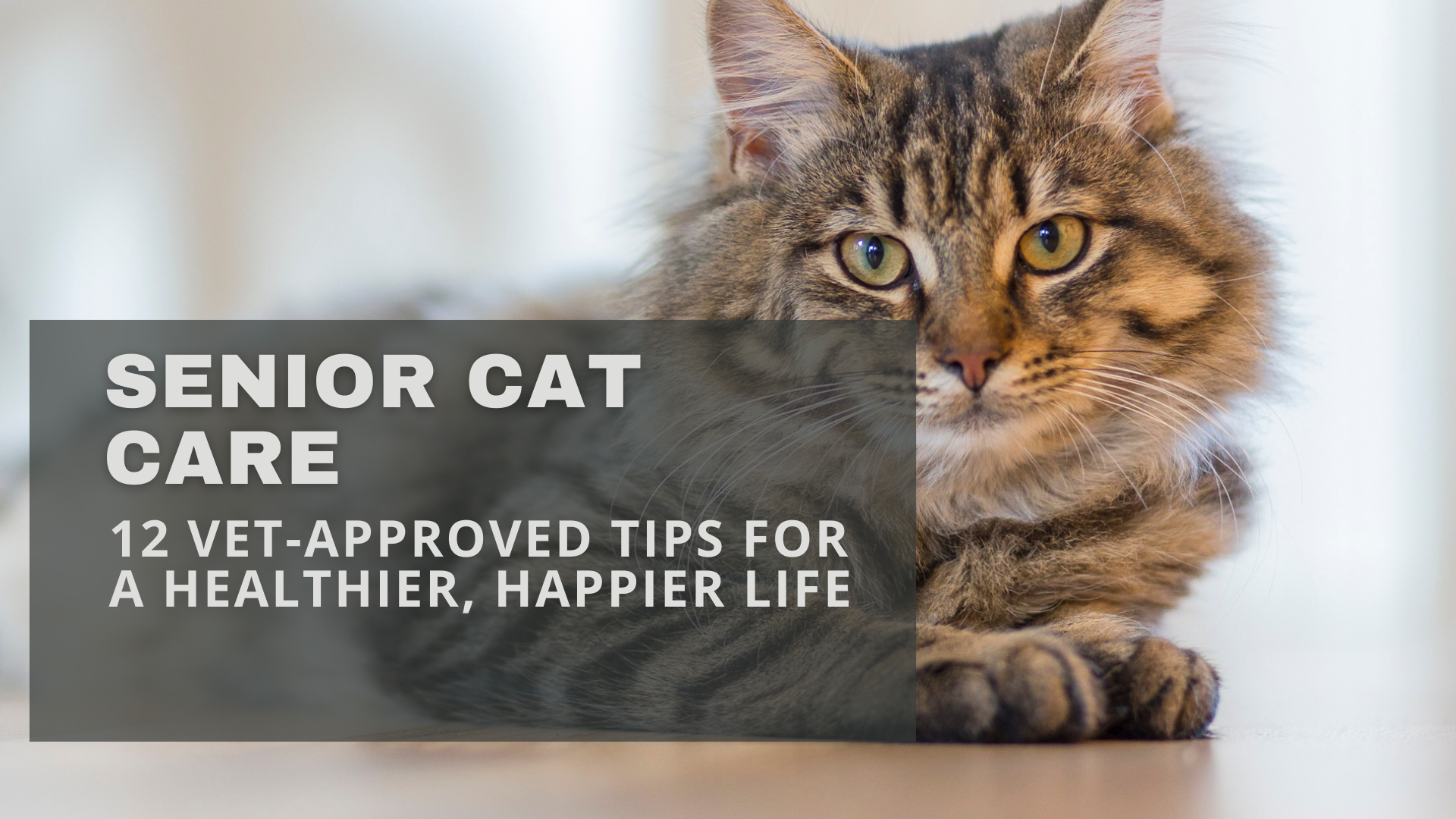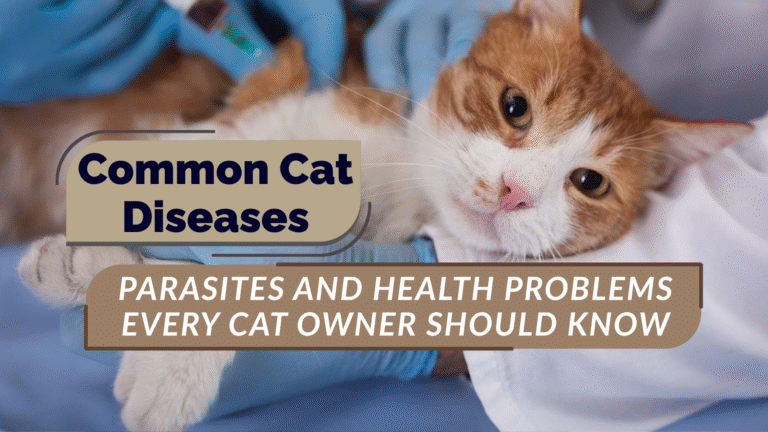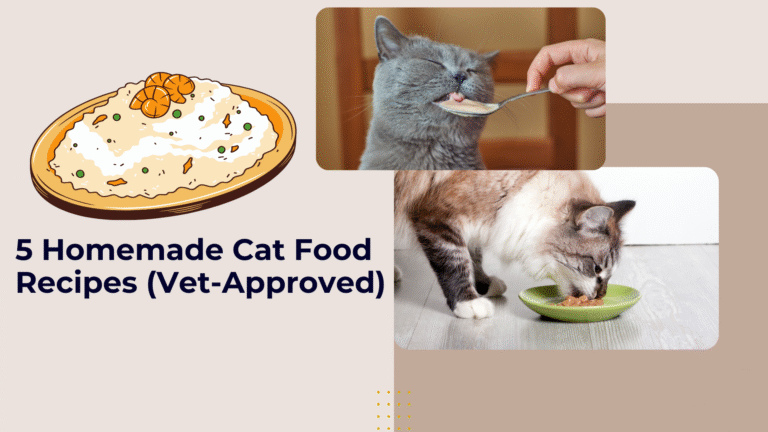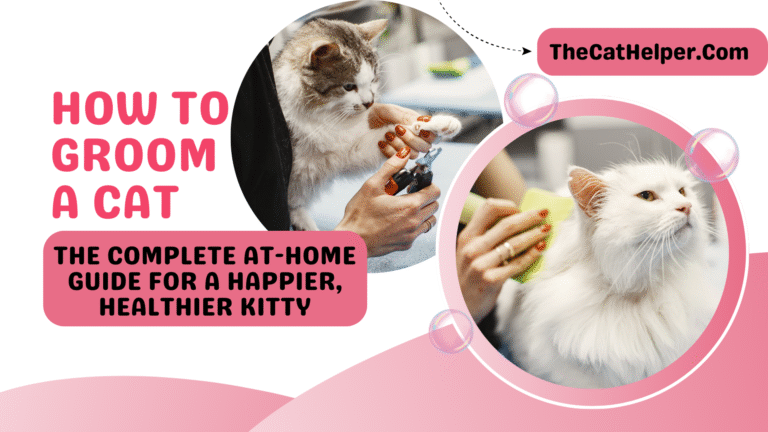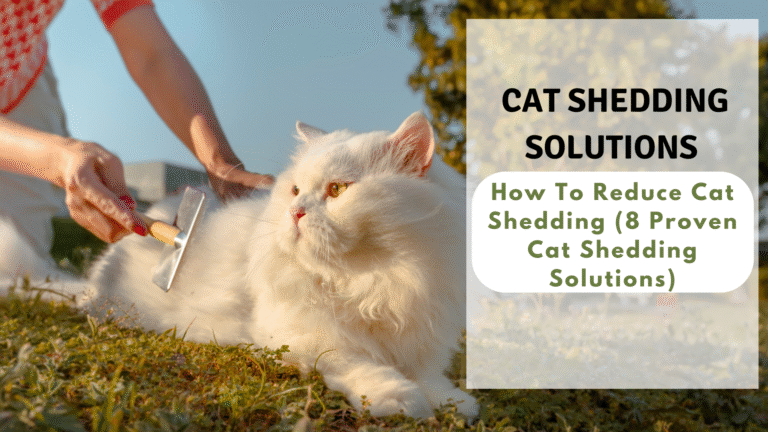Senior Cat Care: 12 Vet-Approved Tips for a Healthier, Happier Life
If you’ve ever had a cat living in your home, then you know how fast kitten playtime years go by. You’re swatting at little claws as they ascend your drapes one minute, and the next, you’re observing them sleep in a sunbeam a little longer than usual. Senility is unavoidable, but caring for older cats is not just letting your feline companion coast. With some clever adjustments, you can make their golden years cozy, healthy, and loving.
So how do you look after older cats according to their shifting needs? Let’s discover 12 vet-approved tips that’ll have your older furball purring like a pro.
How Do I Know If My Cat Is a Senior?
All but the majority of cats are “seniors” at around 11 years old, but various breeds mature differently. Some of the behaviors your cat will exhibit as they reach their “golden years” are:
-
Sleeping more than usual
-
Gaining or losing weight more and more
-
Not as active as usual
-
Changes in appetite or grooming
-
Having more trouble jumping on to the furniture
Pro Tip: Keep it in mind like people just as people retire at different times, cats age at different speeds too. If unsure, just ask your vet during your cat’s next visit.
12 Vet-Approved Senior Cat Care Tips
1. Prioritize Regular Vet Visits
Older cats must visit the vet at least twice a year. These visits provide an opportunity for early detection of diseases like kidney disease, thyroid conditions, or arthritis when it is most treatable.
2. Adjust Their Diet for Aging Needs
Old cats require a diet that will maintain their joint, kidney, and lean body mass health. Consider:
-
High-quality protein
-
Phosphorus-restricted (for kidney function)
-
Omega-3 rich and supplemented antioxidants
Pro Tip: Since your older cat is picky, warm their food gently to keep bad smells away.
3. Monitor Weight Closely
Weight loss or gain in aging cats could be the first indication of severe illness.
-
Loss of weight is a possibility for hyperthyroidism, diabetes, or cancer.
-
Gain in weight can indicate decreased activity or endocrine imbalance.
4. Make Their Environment Accessible
Bouncing around could be more difficult. To assist
-
Add ramps or pet steps to beds and couches
-
Put food and litter boxes on floor level
-
Round up low-sided litter boxes to make it easy to lift
5. Support Joint and Mobility Health
Arthritis in older cats is typical but they won’t complain. Consider:
-
Soft, orthopedic mattresses
-
Glucosamine and chondroitin supplements
-
Gentle play sessions to preserve muscle mass
6. Pay Attention to Dental Health
Dental and gum disease is painful but goes unaddressed. Be aware of:
-
Bad breath
-
Drooling
-
Pawing at the mouth
Regular annual dental cleaning and brush their teeth if they will let you.
7. Keep Them Mentally Engaged
Older cats need stimulation too! Think:
-
Food puzzles
-
Short, interactive play sessions
-
Window perches to watch birds
It’s Sudoku for cats mental stimulation keeps them active.
8. Hydration Is Critical
Older cats are also susceptible to kidney disease and dehydration. Encourage drinking with:
-
Several water bowls in the house
-
A cat fountain (most cats prefer running water)
-
Moist food to add moisture to their diet
9. Watch for Subtle Behavior Changes
Cats are experts at concealing illness. Look out for:
-
Accidents in the litter box
-
Increased vocalization
-
Hiding more often
-
Changes in grooming
They might be subtle signs of illness or pain.
10. Grooming Assistance Matters
Older cats can have a hard time staying clean. Assist by:
-
Brushing regularly
-
Gently massaging eyes and ears
-
Keeping nails trimmed
This is not only relaxing, it’s quality time.
11. Create Cozy, Safe Spaces
Older cats adore warmth and peace. Give:
-
Soft cushions in a good spot
-
Warming beds (safely low-voltage)
-
Quiet sanctuary from noisy areas
12. Give Extra Love and Patience
Be above all patient. Older cats move more slowly or require more attention, yet love grows in these years. Cherish every purr, hug, and trembling stroll into the living room.
Senior Cat Care FAQs
How often should older cats see the vet?
At least every two years for yearly check-ups and early development of age-related problems.
Is it normal for senior cats to lose weight?
No. Weight loss is most often an indication of illness. Always have a vet if you notice abnormal or sudden weight loss.
Should I switch my cat to senior cat food?
Yes, but only on your vet’s say-so. Not all senior cats require the same food some are happy on kidney-support food, and some need high-protein food.
Do senior cats sleep more?
Yes, they sleep more. But too much sleeping always indicates something is amiss.
How can I make my home more senior-cat friendly?
Insert ramps, shallow dishes, and comfortable resting spots in to not work joints so hard.
Can senior cats still play?
Yes! They can no longer run around like kittens, but sneaky, relaxed play keeps them active and stimulated.
Conclusion: Helping Your Senior Cat Thrive
Caring for an older cat is a blessing and a reward. Combining the right amount of veterinarian-approved treatment for health, nutritional balancing, mobility assistance, and extra attention will keep you cat in great comfort and bliss well into his/her golden years.
Consider this: just as we would want dignity, comfort, and bliss in our golden years, so do our cats. And with these suggestions, you’re providing them with it.

